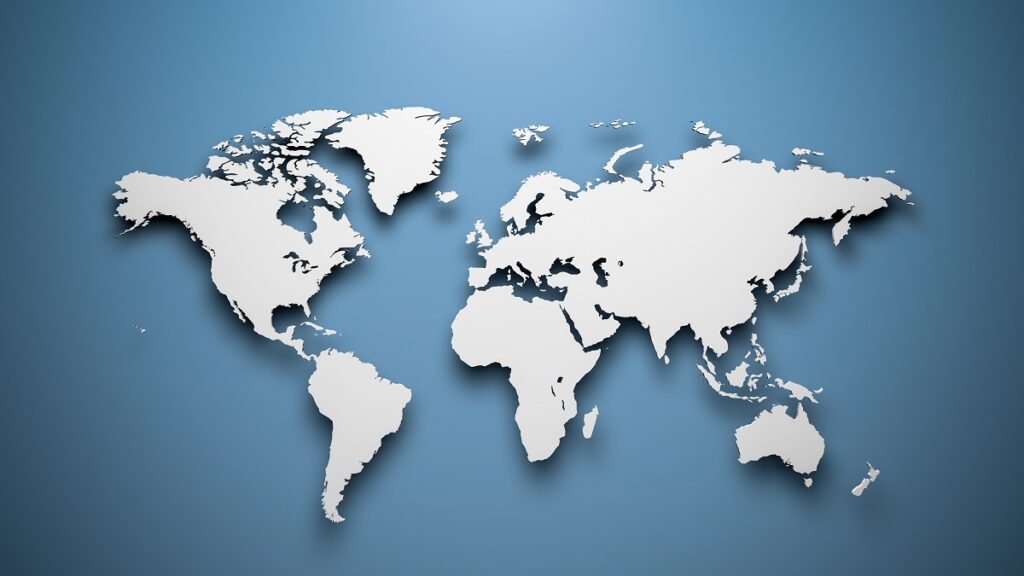Thousands of languages are used globally, with different sounds, intonations, and histories. Some languages are spoken more than others, depending on the number of native and non-native speakers or whether people learn them in school. Determining the top languages spoken in the world is difficult, but one of the best ways is to classify them according to the number of native speakers. According to that classification, the top 10 languages in the world are:
Top 10 Languages in the World by Native Speakers

Mandarin Chinese
Mandarin is the most spoken language globally, with approximately 920 million native speakers and around 199 million non-native speakers. Although Mandarin is among many Chinese dialects, it is used as the official language of the People’s Republic of China.
Spanish
With 470 million native speakers, Spanish, also known as the romance language, is the second most spoken language globally. It is spoken in 31 countries, mainly around Spain and Latin America. However, the Spanish colonial expansion spread the language to parts of Africa and Asia.
In addition to its native speakers, there are another 74 million non-native speakers, and it is the third-most used language on the internet. Because of the language’s phonetic nature, the language is regarded as easy to learn.
English
Having around 370 million native speakers, English comes third on the list. However, it has the highest number of non-native speakers, approximately 753 million, making it one of the most popular languages globally.
Over one hundred countries have English as their official first language, and because many people globally choose it as their second language, it is considered the most influential language. It was originally a Germanic language, but it changed over time because of the influence of different languages.
Hindi
Hindi is India’s official language, with around 342 million native speakers and 247 non-native speakers. It is only a first language in seven countries, but its popularity is thanks to the vast population in those countries.
Arabic
Approximately 270 million people in 60 countries speak Arabic as their native language. Muslims consider it a sacred language, and it is primarily used in written form. Because of this, native speakers believe that people should only read the Quran in Arabic. Twenty-six countries have listed it as their official language, but there are many different dialects, making it one of the most complex languages to learn.
Portuguese
Used by about 250 million people as a first language and about 13 million people as a non-native language, this is among the top 10 languages in the world. Most Portuguese speakers are from South America and Africa, and it is the official language in nine countries.
Bengali
Also referred to as Bangla, the language has around 230 million native speakers, most of whom are from India and Bangladesh. It also has about 37 million non-native speakers and is Bangladesh’s official language.
Russian
Around 150 million people in 16 countries speak Russian as their native language, and about 104 are non-native speakers. It is the most popular Slavic language and is the official language in four countries: Belarus, Kazakhstan, Kyrgyzstan, and Russia.
Japanese
Almost entirely only spoken in Japan, Japanese has approximately 130 million native speakers. The language has a lot of onomatopoeia, meaning sounds represented by words used in Japanese comics.
Punjabi
Used by around 113 million people as a first language, this is the last language on the list of most spoken languages globally. It is Pakistan’s most-used language and Britain’s fourth most-used language. Being part of the large Indo-European language family, Punjabi is considered a distant English relative.
Related: Say Happy Holidays in 70 Languages
Get Professional Language Translation Services
Because languages and dialects vary, you should look for professional translation services when holding multilingual events and working with people from diverse backgrounds. Ensure that you work with an experienced language translator for the best translation and interpretation services in whatever language, and ensure that they know the different dialects of the language.
FAQs
What is the most spoken language in the world by native speakers?
Mandarin Chinese is the most spoken language globally, with approximately 920 million native speakers.
Which language has the most non-native speakers?
English has the highest number of non-native speakers, with around 753 million people speaking it as a second language.
Why is Spanish considered an easy language to learn?
Spanish is regarded as easy to learn due to its phonetic nature, meaning words are pronounced as they are written.
How many countries have Arabic as their official language?
Arabic is the official language in 26 countries.
What makes Japanese unique among the top spoken languages?
Japanese is unique because it is almost entirely spoken only in Japan and features a lot of onomatopoeia, which are words that phonetically imitate sounds.
